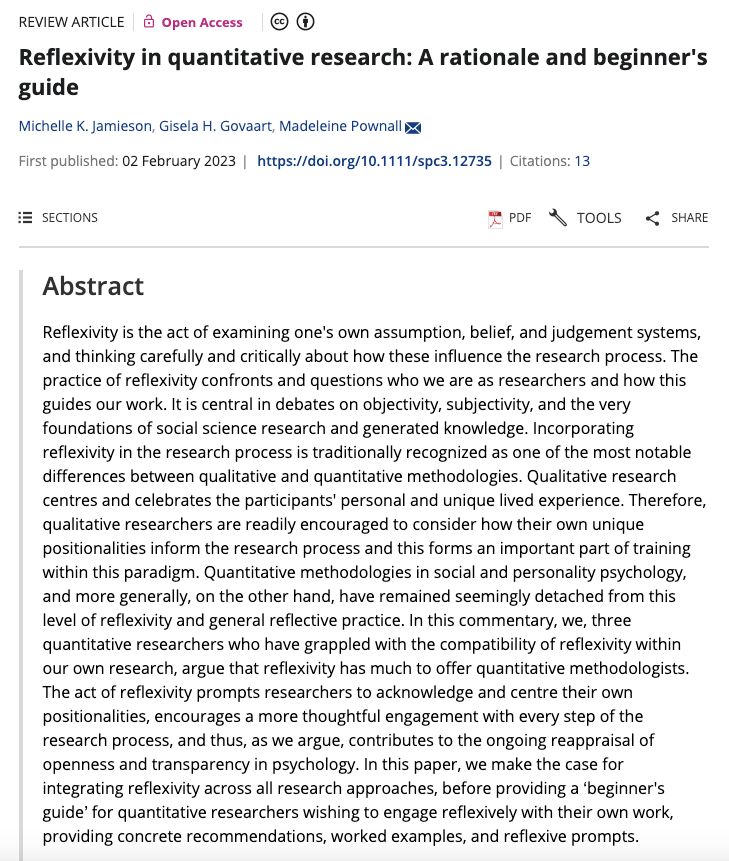
Reflexivity is the act of examining one's own assumption, belief, and judgement systems, and thinking carefully and critically about how these influence the research process. The practice of reflexivity confronts and questions who we are as researchers and how this guides our work. It is central in debates on objectivity, subjectivity, and the very foundations of social science research and generated knowledge. Incorporating reflexivity in the research process is traditionally recognized as one of the most notable differences between qualitative and quantitative methodologies. Qualitative research centres and celebrates the participants' personal and unique lived experience. Therefore, qualitative researchers are readily encouraged to consider how their own unique positionalities inform the research process and this forms an important part of training within this paradigm. Quantitative methodologies in social and personality psychology, and more generally, on the other hand, have remai
"even if data are quantitative and numerical, the ways in which they are analysed and, to a greater extent, the inferences made from this analysis, will vary depending on who the researcher is."
I LOVE this paper, which talks about reflexivity in quant, not qual, research
tinyurl.com/3r3s39ty